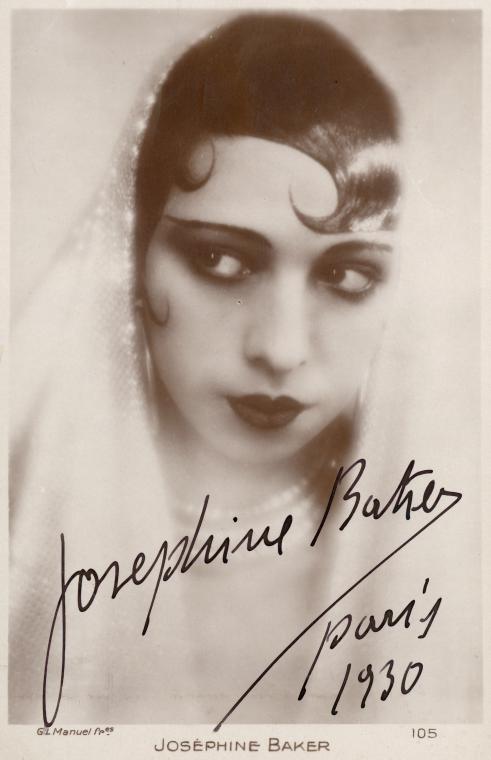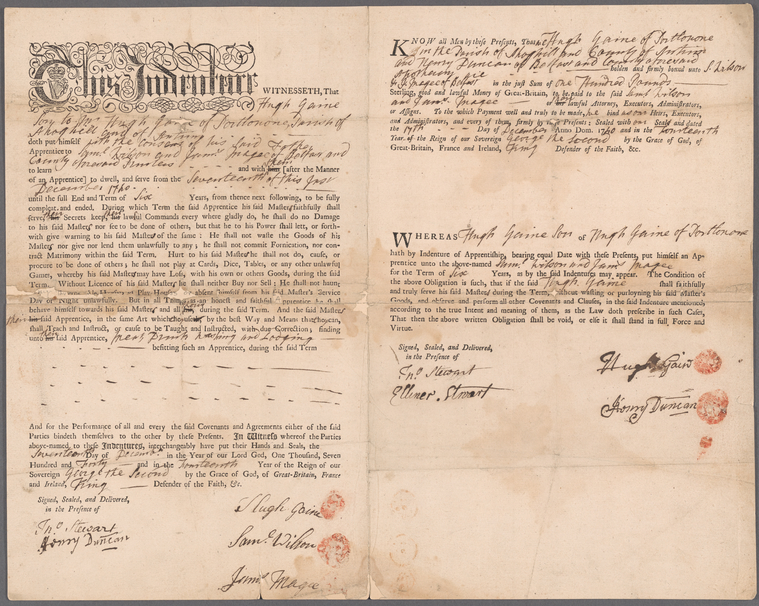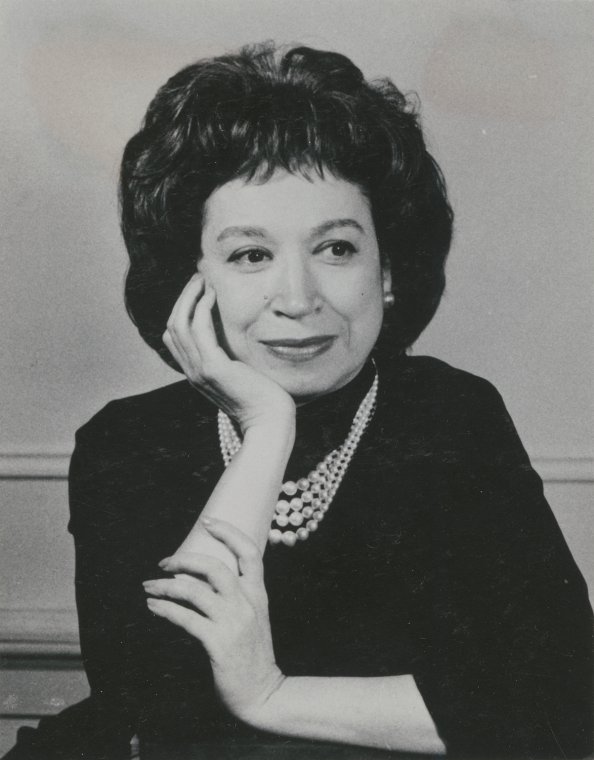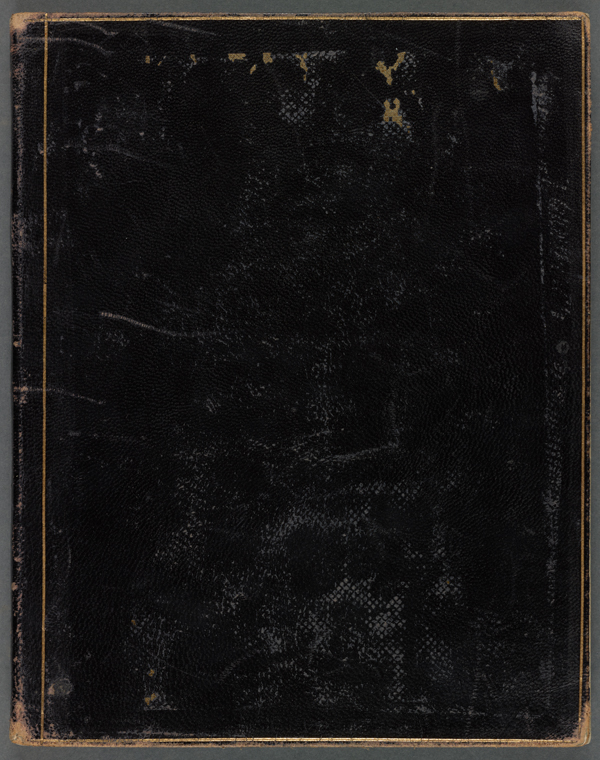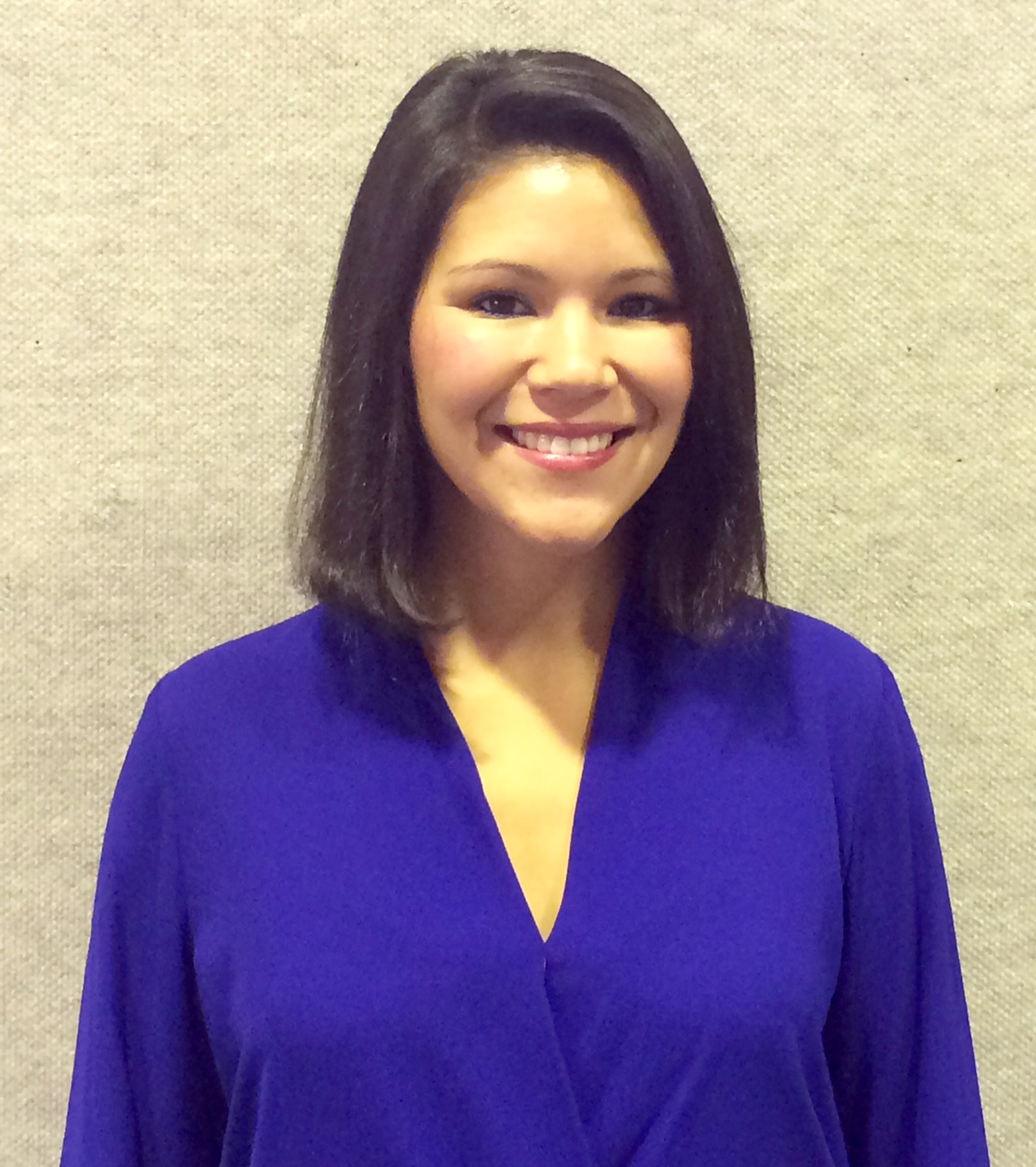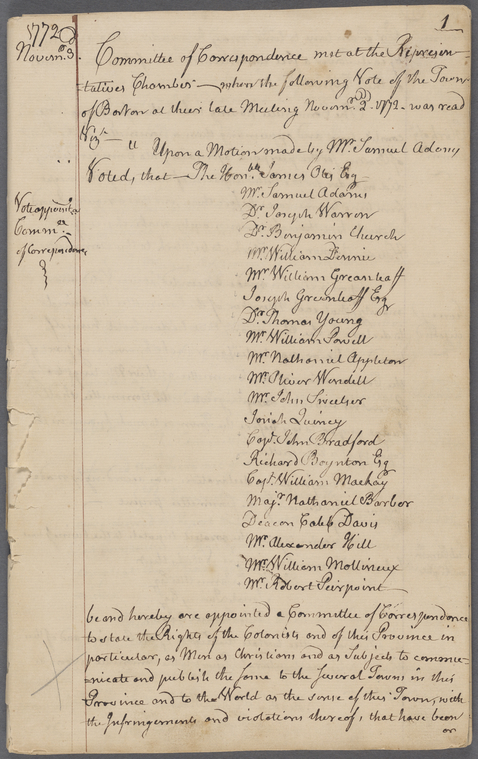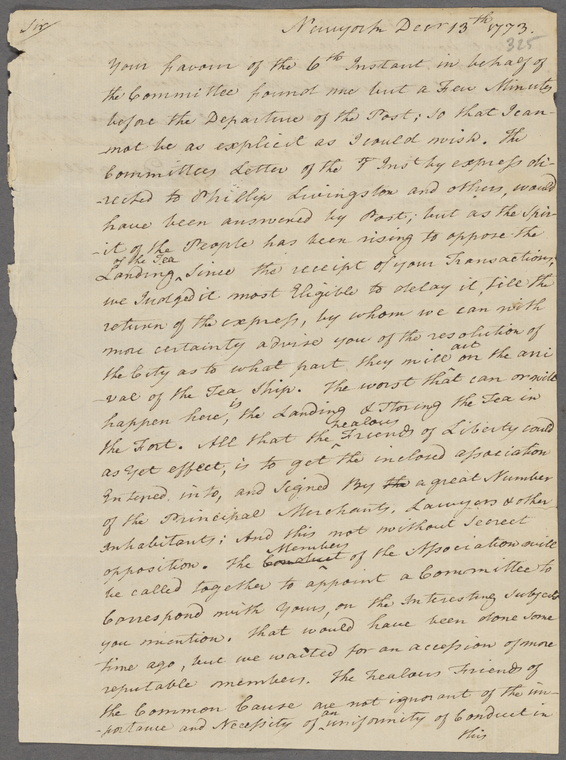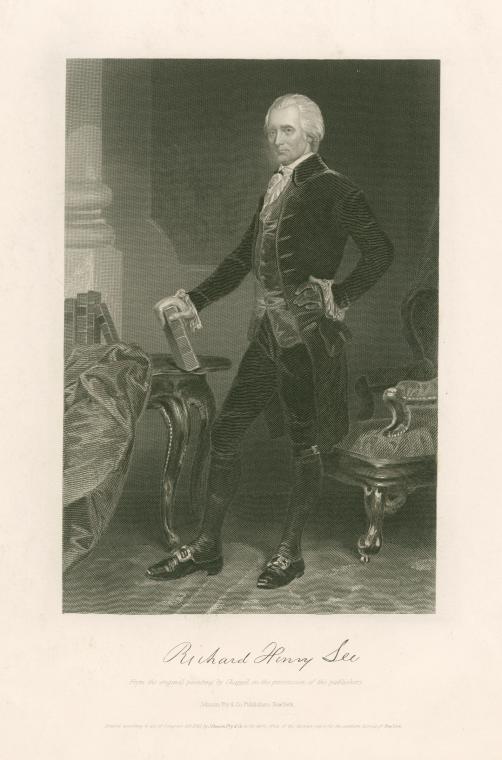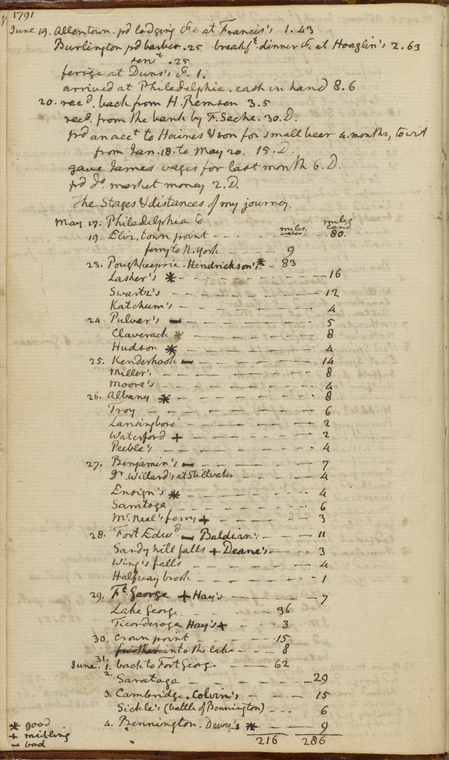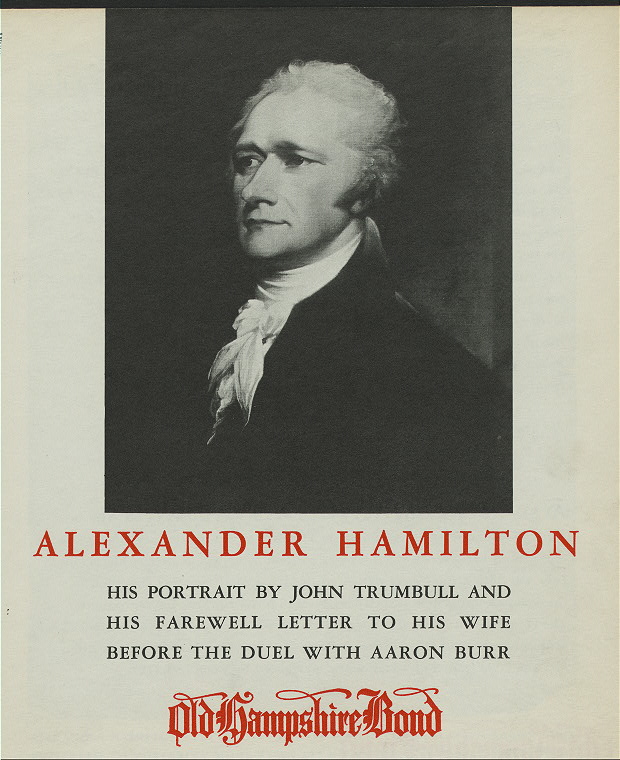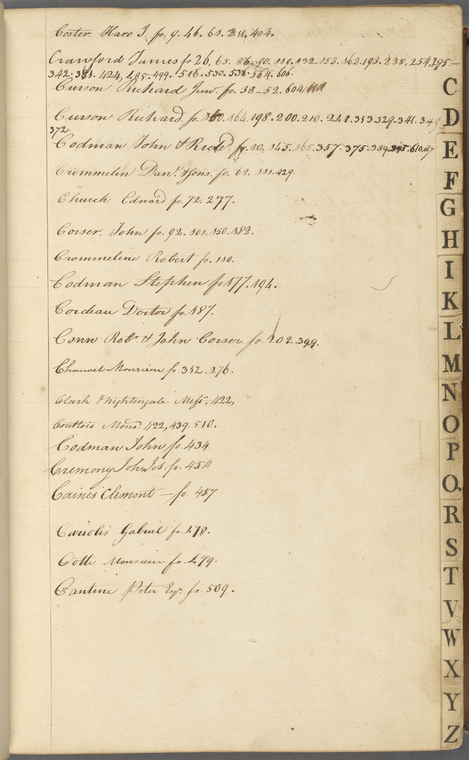Live From the Reading Room: Claude McKay to Walter White
by Alexsandra Mitchell, Reference Librarian and Archivist, Manuscripts, Archives and Rare Books Division, Schomburg Center for Research in Black Culture
April 11, 2016
Today’s episode features a letter from Jamaican-American Harlem renaissance era poet and writer Claude McKay to NAACP leader and civil rights activist, Walter White.
Live From the Reading Room: Josephine Baker to Sumio Matasuo
by Alexsandra Mitchell, Reference Librarian and Archivist, Manuscripts, Archives and Rare Books Division, Schomburg Center for Research in Black Culture
March 28, 2016
Live from the Reading Room: Correspondence is a podcast series that aims to share interesting and engaging letters written by or to key historical figures from the African Diaspora.
Recently Digitized Early American Manuscript Collections, March 2016
by Mark Boonshoft
March 15, 2016
Recently digitized collections of early American manuscripts.
Live from the Reading Room: Nathan Woodard to Alice Childress
by Alexsandra Mitchell, Reference Librarian and Archivist, Manuscripts, Archives and Rare Books Division, Schomburg Center for Research in Black Culture
February 19, 2016
A love letter from musician and composer Nathan Woodard to his wife and creative collaborator Alice Childress.
A Trivial Blog Post for Serious People
by Meredith Mann, Manuscripts and Archives Division, Stephen A. Schwarzman Building
February 9, 2016
An unassuming black notebook contains the earliest draft of Oscar Wilde’s play The Importance of Being Earnest, written by hand and with the author’s frequent emendations.
Live from the Reading Room: Arturo Schomburg to Langston Hughes
by Alexsandra Mitchell, Reference Librarian and Archivist, Manuscripts, Archives and Rare Books Division, Schomburg Center for Research in Black Culture
February 5, 2016
Today’s letter features correspondence between Arturo Alfonso Schomburg and Langston Hughes. In the excerpt below, Schomburg speaks with Hughes regarding acquisitions for The Division of Negro Literature, History and Prints—the forerunner to today’s Schomburg Center.
Meet the Schomburg's Newest Archivists!
by Candice Frederick
November 30, 2015
Our newest archivists, Tiana Taliep and Alexsandra Mitchell, tell us what it’s like to research and preserve some of the finest materials across the African Diaspora, and their journey to the Schomburg Center.
Top 9 Documents from the Boston Committee of Correspondence Records
by Mark Boonshoft
November 30, 2015
The BCC records is an important resource for understanding the American Revolution. But it is also a massive and unwieldy one. To make things easier, I've put together a list of nine important and representative documents from the BCC records, which, taken together, offer a rough outline of the BCC's activities and functions during the 1770s and 1780s, as well as a sense of the Committee's place in the larger story of the American Revolution.
Joseph Hawley Papers Digitized
by Mark Boonshoft
October 8, 2015
As part of the Early American Manuscripts Project, the Library has just digitized and made available online the Joseph Hawley papers. Hawley was a lawyer, legislator, and militia officer from Northampton, Massachusetts.
Reintroducing the Boston Committee of Correspondence Records
by Mark Boonshoft
October 6, 2015
Looking back on the Revolution in 1815, John Adams remarked that “The History of the United States never can be written” without the records of the Boston Committee of Correspondence.
Unexpected Sources: Slave Cloth in the Richard Henry Lee Letters
by Mark Boonshoft
September 3, 2015
One of the most surprising letters I have recently come across is held in a small group of Richard Henry Lee correspondence: a passing reference that serves as an indication of slavery’s enormous economic influence.
Traveling the Roads of Early America with Jefferson
by Mark Boonshoft
August 12, 2015
Thomas Jefferson recorded, measured, and calculated things obsessively. He kept copious notes in his account book on the distances he traversed and the roads he traveled.
HAMILTON: The Archive
by Doug Reside, Curator, Billy Rose Theatre Division, New York Public Library for the Performing Arts, Dorothy and Lewis B. Cullman Center
August 7, 2015
In the musical Hamilton, which opened last night on Broadway, George Washington tells Alexander Hamilton, “You have no control...who tells your story.” At the New York Public Library, we preserve the artifacts that allow such stories to be told, and we have an especially strong collection of archives related to the women and men whose lives inspired the characters in the musical.
Sea Blazers and Early Scriveners: The First Guidebooks to New York City
by Andy McCarthy, Milstein Division of U.S. History, Local History & Genealogy, Stephen A. Schwarzman Building
July 23, 2015
The first guidebooks to New York City were written by the navigators, explorers, crewmen, trail-makers, and settlers who sailed west from Europe across the Atlantic Ocean in the 16th and 17th centuries.
Letterbooks, Indexes, and Learning about Early American Business
by Mark Boonshoft
July 20, 2015
Letterbooks were the hard drives of their day. Businessmen and merchants used letterbooks to keep records of their business transactions. To learn about how everyday life worked in a given period, there really is no substitute for these and other manuscript sources.
George Chalmers and the History Wars of the American Revolutionary Era
by Mark Boonshoft
June 12, 2015
George Chalmers was a sore loser. Born in Scotland in 1742, Chalmers came to Maryland in 1763 and practiced as an attorney until 1775. Hostilities between Britain and its colonies drove the ardent loyalist to leave North America for London. In England, Chalmers began amassing documents and writing histories about colonial North America and British imperial policy in the seventeenth and eighteenth centuries.
Despotic Characters: Researching Shorthand at the New York Public Library
by Meredith Mann, Manuscripts and Archives Division, Stephen A. Schwarzman Building
May 27, 2015
Through multiple gifts over the years, The New York Public Library has gathered an outstanding and extensive collection of shorthand material. These items can help answer such wide-ranging questions as: What was the eruption of Mount Vesuvius like? Why are some of the lines in Shakespeare’s King Lear so weird? and How can I take faster notes in my classes and work meetings?
The Case of the False Quixote
by Meredith Mann, Manuscripts and Archives Division, Stephen A. Schwarzman Building
April 22, 2015
I recently came across a third volume of Don Quixote. Cervantistas among you know that this novel, the full title of which is El Ingenioso Hidalgo Don Quixote de la Mancha, consists of two parts only. What’s more, the author listed is not Cervantes, but “the Licentiate Alonzo Fernandez de Avellaneda.” So what exactly is going on here?
Remembering (the Hardly Trivial) Sam Houston: Rare Texana at the Library
by Michael Inman, Susan Jaffe Tane Curator of Rare Books, Rare Book Division, Stephen A. Schwarzman Building
April 21, 2015
April 21 is the anniversary of the Battle of San Jacinto. As any grade school student in the Lone Star State will proudly tell you, the leader of the Texan forces was Samuel “Sam” Houston, a.k.a. the President of the Republic of Texas. He is well-represented in NYPL's collection of Texana.
Strasbourg's Most Splendid Party
by Kathie Coblentz, Rare Materials Cataloger, Spencer Collection, Stephen A. Schwarzman Building
April 14, 2015
On October 5, 1744, the city of Strasbourg threw a party that would last through the five following days. There were processions, ceremonies, arches of triumph, costumed children, music, dancing, banquets, fireworks, jousting, water games, allegorical figures, decorated barges, and pageantry of all sorts. It was a most splendid party.
 With your library card, it's easier than ever to choose from more than 300,000 e-books on SimplyE, The New York Public Library's free e-reader app. Gain access to digital resources for all ages, including e-books, audiobooks, databases, and more.
With your library card, it's easier than ever to choose from more than 300,000 e-books on SimplyE, The New York Public Library's free e-reader app. Gain access to digital resources for all ages, including e-books, audiobooks, databases, and more.

